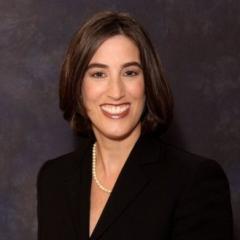
Volunteer of the Month: Cantor Susan Bortnick
Susan Bortnick is cantor at Washington Hebrew Congregation. She is a graduate of HUC-JIR, DFSSM, 2001.
In what capacity have you volunteered for the ACC?
I’m the ACC representative to the Commission on Lifelong Learning. I’ve been a member of the committee for about two and a half years. Beyond that, I’ve been present at conventions and things like that.
How did you happen to volunteer? Did someone approach you?
Susan Caro asked if there was something I’d be interested in.
What’s the most rewarding benefit of volunteering?
I really value the discussion on the commission; voices are represented: cantors, rabbis, early childhood, youth directors, all the different parts, the camps, everybody. It’s been very rewarding to be the Cantorial voice on this commission. I think it’s important that we have some venues where all the voices are represented, rather than just the vision of an elite few.
What do you think are some of the biggest challenges facing the cantorate today and in the future?
For many of us, the role in practice we play is not different than that of a rabbi. But I think that making synagogues aware that that’s the case, so that they value us, is important. There’s a push to get more training, to be able to do more. But we, in practice, do everything. Having another degree can help, but to go to that extent, when we do what we do anyway...
What influenced you to become a cantor?
I decided when I was fourteen that I wanted to be a cantor. I grew up without a cantor. When Robert Gerber came to Amarillo, Texas, where I’m from, and spent a whole weekend there, I loved knowing that the cantorate was more than just singing and doing services; that it was counseling and teaching, and everything I wanted to do rolled up in one job...one position. Because it was everything I wanted to do, and it seemed to fit me like a glove, I declared I was going to be a cantor. My parents pushed me in another direction, but when I came to a point where I had to decide what I wanted to do, they said, “Well, you can always become a cantor.”
What’s the best part of being a cantor?
I just really enjoy making Judaism accessible to my congregants. Sometimes that’s through the music and sometimes it’s not. But whenever I feel I’ve enlightened them in some way, or made them feel that their Judaism is worthwhile, or remaining Jewish in the future when I’m talking to a younger person, or just giving them a new insight into their religion, that’s what I find the most rewarding. I see the light bulb go on, and the eyes brighten. And it’s just information I’ve shared with them. It’s an extra way for them to be connected to their religion and traditions. Last week I led the Torah study. It was the Ten Commandments, and I happened to mention that there were two different trope systems. A congregant approached me afterwards and we had a discussion about trope. He was a knowledgeable Jew, but he was so excited. He had no idea about the signs and the six different melodies, and that each community had their own strains of the melodies. He wanted a whole discussion class on this.
Tell us one thing about yourself that we might not know that you wouldwant us to learn about you.
There are 3 things: First, I have a business degree from the University of Texas; second, there are Jews in Texas; and third, I like kayaking.

